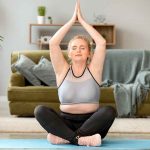Social media can be a wonderful place for self-expression, creativity, and connection. But as we scroll through endless streams of beauty content, it’s easy to feel like we’re falling short of an impossible ideal. Filters, flawless makeup tutorials, and photoshopped bodies—while entertaining—can create beauty standards that feel out of reach for most of us. This often leaves people comparing themselves to highly curated images, impacting their mental health in ways that can’t be ignored.
Let’s explore how these beauty ideals shape the way we see ourselves and what we can do to develop a healthier relationship with social media.
The Rise of Social Media and Beauty Standards
Social media has transformed the way we interact with beauty trends. Platforms like Instagram and TikTok don’t just showcase beauty—they set the tone for what’s considered desirable. The difference between now and previous decades is that beauty content is not just produced by celebrities and magazines; everyday people are also part of the conversation. This can be empowering, but it also makes the standards harder to escape.
With apps making it easy to tweak your appearance in just a few taps, it’s no surprise that many people feel pressure to look “perfect” all the time. Beauty trends evolve quickly online, and keeping up with them can feel exhausting. A look might go viral today, but by the next week, the spotlight shifts to another trend. This constant change often leaves users feeling like they’re in a race they can’t win.

Filters, AI, and the Trap of Perfection
One major issue is the rise of filters and editing tools that alter appearances with uncanny precision. These digital touch-ups go beyond simple adjustments—they can reshape facial features, lighten skin tones, and smooth out imperfections. Even though most people know that these images aren’t real, they can still have a subtle but powerful influence. Seeing airbrushed faces day after day makes it harder to feel comfortable in your own skin.
Filters are especially tricky because they blur the line between reality and fantasy. You can snap a selfie, apply a filter that slims your nose or brightens your eyes, and post it online. But the next time you look in the mirror, you might feel disappointed by your actual reflection. This creates a loop where people rely on filters to feel attractive, slowly chipping away at their self-esteem.
The Impact of Unrealistic Beauty Standards on Mental Health
The pressure to meet social media’s beauty standards affects more than just how people look—it also impacts how they feel. It’s easy to scroll through your feed and wonder, “Why don’t I look like that?” This comparison culture can lead to a host of mental health challenges, ranging from low self-esteem to anxiety and depression.
Siren Training, who provide Mental Health First Aid courses, Neurodiversity Training for Workplaces, and Wellbeing Workshops, have emphasised the importance of addressing mental health within the beauty and wellness space. In conversations with us at One Step to Fitness, they highlighted how essential it is to recognise the emotional impact that social media can have. Whether through education or practical workshops, they stress the importance of equipping people with the tools to manage mental health challenges in environments shaped by beauty ideals.
This collaboration serves as a reminder that addressing mental health goes beyond personal efforts—it’s about fostering supportive spaces where people feel empowered to be themselves, both online and offline.

Self-Esteem and Body Image Issues
One of the most common effects of social media beauty standards is a decline in self-esteem. When your feed is filled with people who seem effortlessly beautiful, it’s hard not to feel like you’re missing the mark. Even though these images are often staged, filtered, or edited, they still set an unrealistic standard for what we “should” look like. Over time, this comparison can make you feel less confident and dissatisfied with your appearance.
Teenagers are particularly vulnerable to these pressures. During adolescence, people are still figuring out their identity and self-worth, which makes them more likely to internalise unrealistic beauty messages. Research shows that teens who spend more time on apps like Instagram report higher levels of body dissatisfaction, often comparing themselves to influencers or celebrities.
Anxiety, Depression, and the Search for Validation
When beauty becomes a currency on social media, the pursuit of validation can become overwhelming. Many users feel pressure to post images that will generate likes, comments, and shares, leading to a cycle of seeking external approval. But this kind of validation is fleeting, and when posts don’t get the expected engagement, it can trigger feelings of anxiety and self-doubt.
Social media also encourages a comparison mindset. Even if you don’t realise it, seeing someone else’s perfectly styled selfie or glowing skin can make you feel inadequate. This doesn’t mean you’re consciously jealous—it’s just that constant exposure to other people’s highlight reels makes it difficult to appreciate your own unique qualities. Over time, this pattern can contribute to symptoms of depression, as you feel stuck in a loop of never being “enough.”

Harmful Behaviour and Body Dysmorphia
For some, the pressure to meet beauty standards goes beyond emotional strain and manifests in harmful behaviours. Eating disorders, obsessive exercise routines, and excessive grooming are just a few examples of how unrealistic ideals can push people to unhealthy extremes.
Body dysmorphic disorder (BDD) is another growing issue linked to social media. BDD is a condition where someone becomes preoccupied with perceived flaws in their appearance—flaws that are often minor or even non-existent. The constant comparison on social platforms feeds into these obsessions, making it harder for individuals to feel comfortable in their own skin.
Curating a Healthier Relationship with Social Media and Beauty Content
While social media isn’t inherently harmful, it’s important to be mindful of how it influences our self-perception. The good news is that there are practical ways to reclaim control over the way we engage with beauty content. These small changes can help shift our focus from comparison to self-acceptance.
Adjusting Your Social Media Habits
One of the first steps to feeling better about yourself online is to rethink how much time you spend scrolling through beauty content. It’s easy to lose track of time on apps like Instagram or TikTok, but too much exposure can take a toll on your mental health. Limiting your screen time, especially on platforms that encourage comparison, can create space for healthier habits to develop.
Curating your feed is another helpful strategy. You don’t need to follow every beauty influencer or brand that shows up in your suggestions. If certain accounts make you feel pressured to look a certain way, it’s okay to unfollow or mute them. Following content that aligns with your values—whether that’s body positivity, diversity, or authenticity—can transform your social media experience.
Diversifying Your Feed
In recent years, the beauty industry has made strides towards greater inclusivity, but it’s still easy to find feeds flooded with a narrow view of beauty. Actively seeking out diverse voices and content can help break the illusion that beauty only looks one way. Follow influencers and brands that celebrate different skin tones, body types, and gender expressions.
When you surround yourself with a variety of perspectives, it becomes easier to appreciate your own unique qualities. Seeing others embrace their differences can inspire you to do the same and reduce the pressure to conform to mainstream ideals.

Practicing Mindful Consumption
Another way to develop a healthier relationship with beauty content is to practise mindful consumption. This means being aware of how certain posts, trends, or accounts make you feel. If scrolling leaves you feeling anxious or inadequate, take a step back. Social media doesn’t need to be all or nothing—it’s okay to engage with it in a way that feels sustainable for you.
A digital detox every now and then can be incredibly refreshing. Whether it’s a tech-free morning or a weekend off social media, giving yourself breaks helps reset your mindset. In those moments away from screens, try activities that promote self-love, like journaling, art, or spending time with friends and family.
Embracing Self-Compassion
One of the most important tools for navigating social media’s beauty pressures is self-compassion. It’s easy to fall into the trap of negative self-talk when we compare ourselves to others, but practising kindness towards yourself can make a big difference. The next time you catch yourself thinking, “I wish I looked like that,” try to reframe the thought. Remind yourself that what you see online is only one version of beauty—not the full picture.
Affirmations can also be a powerful way to build self-esteem. Write down a few positive statements about yourself and read them whenever you feel the urge to compare. Small practices like these might not erase all insecurities overnight, but over time, they help shift your focus towards self-acceptance.
The Role of the Beauty Industry in Mental Health Advocacy
The beauty industry isn’t just about selling products—it plays a role in shaping societal views on beauty and self-worth. Thankfully, some brands are beginning to take responsibility for the impact their messaging has on mental health.
Beauty Brands Promoting Mental Health
There are now more beauty brands launching campaigns that prioritise mental health and authenticity. For example, Dove’s “Real Beauty” campaign features people of all shapes, sizes, and skin tones, challenging narrow beauty standards. Other companies have collaborated with mental health organisations to spread awareness, encouraging consumers to value themselves beyond appearances.
These campaigns show that the beauty industry has the potential to foster positive change. By promoting diverse representations of beauty, brands can help shift cultural expectations and normalise the idea that everyone is worthy, just as they are.
Influencers and the #NoFilter Movement
Influencers also have a part to play in reshaping beauty ideals. Some influencers are now opting for transparency, posting unfiltered photos and discussing their struggles with mental health. Movements like #NoFilter encourage users to share real, unedited moments, reminding others that life isn’t always perfectly polished.
This kind of openness helps break the cycle of comparison by showing that everyone has flaws—even those who seem to “have it all” online. When influencers model vulnerability, they create space for others to feel comfortable in their own skin.
The Key to Navigating these Pressures
Social media is a powerful tool that shapes the way we see ourselves, especially when it comes to beauty. While it can inspire creativity and connection, it also promotes ideals that aren’t always realistic or healthy. Constant comparison can leave us feeling inadequate, anxious, and disconnected from our true selves.
The key to navigating these pressures lies in curating a healthier relationship with beauty content. By setting boundaries, diversifying our feeds, and practising self-compassion, we can engage with social media in a way that feels good. At the same time, the beauty industry and influencers must continue to advocate for mental health, fostering a culture that celebrates all forms of beauty.
In the end, beauty is not about perfection—it’s about embracing what makes each of us unique. The next time you catch yourself comparing, take a deep breath, step away from the screen, and remind yourself: you are enough, just as you are.




